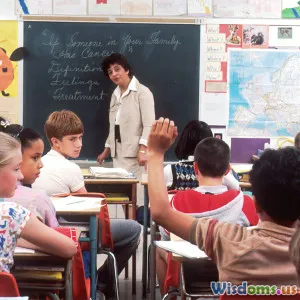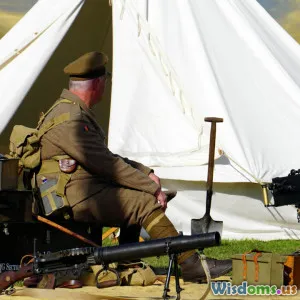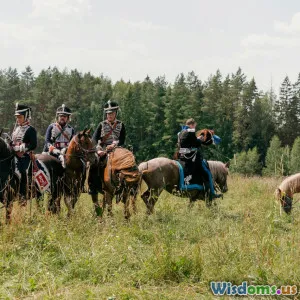
Comparing Greek And Roman Approaches To Teacher Training
12 min read An insightful comparison of Greek and Roman methods in teacher training, revealing foundational educational philosophies and their lasting influence. (0 Reviews)
Comparing Greek and Roman Approaches to Teacher Training
Education in ancient civilizations provides critical insights into how societies value knowledge, pedagogy, and institutional structures. Among the most influential were the Greek and Roman cultures, each developing unique systems for training educators which have left enduring legacies on modern teaching practices. This article delves deep into their approaches to teacher training, comparing their methodologies, philosophies, societal roles, and impacts.
Introduction: Why Teacher Training Mattered in Antiquity
The backbone of any education system is its teachers — their preparation affects students' learning quality and cultural development. In classical antiquity, education was not universal; it was closely linked to status, citizenship, and societal roles. Yet, both Greece and Rome recognized that effective teachers required preparation beyond mere knowledge.
While the Greeks often philosophized extensively on education itself, Romans, heirs to Greek traditions, famously focused on adapting and institutionalizing those lessons within pragmatic governance and social engineering contexts. Understanding how these two civilizations approached the crafting of educators sheds light on broader cultural priorities and early education innovations.
Foundations in Greek Teacher Training
Philosophical Underpinnings: The Pursuit of Arete (Excellence)
Greek society heralded the concept of "arete," meaning excellence or virtue, as central to education. Teachers were expected to cultivate not only knowledge but character in students. This ideal permeated notions of teacher training — educators needed a grounding in philosophy, ethics, rhetoric, and physical education.
Plato (427–347 BCE), in his works like "The Republic," envisioned highly structured education systems where philosopher-kings would train future teachers through rigorous and prolonged study. For Plato and his successors, training a teacher was an intellectual and moral endeavor:
"The true teacher is one who shapes the soul and awakens the mind, not merely transmits knowledge."
Aristotle, Plato’s student, in his "Politics" and "Nicomachean Ethics," emphasized pedagogy’s practical side: teachers must be skilled in dialogue and adapting instruction to enable virtue and rationality in children.
Methods and Institutions
Formal teacher training in Greece was not centralized but often linked to philosophical schools, such as the Academy and the Lyceum. Apprenticeships under seasoned educators were common; young men seeking to teach would study rhetoric, grammar, and dialectics extensively.
For example, sophists were itinerant educators who trained not just in rhetoric but also specialized in teaching public speaking, vital for political and judicial success in democratic Athens. These sophists often established their own schools and exams for prospective teachers, promoting practical application over dogmatic learning.
Curriculum Content for Teacher Trainees
- Grammar and Literature: Mastery of Homeric epics and poetry was vital.
- Rhetoric and Logic: Central to teaching argumentative skills.
- Ethics and Philosophy: To guide moral formation.
- Physical Education: Seen as essential for a balanced education.
Role of Community and Public Expectation
Greek teachers were often respected figures; however, public scrutiny was high. Teachers who failed to inculcate virtue were criticized harshly, and the polis (city-state) took education seriously as a civic duty.
Roman Teacher Training: Practicality Meets Tradition
The Roman Adoption and Adaptation of Greek Educational Models
Rome inherited heavily from Greek educational thought but consistently reframed it within practical governance and social mobility frameworks. The Romans didn’t develop extensive philosophical treatises on education like the Greeks but emphasized efficient, formalized teacher training to serve the expanding empire’s bureaucratic and legal needs.
The Role of the Magistrate and State in Teacher Oversight
In the Roman Republic and later Empire, education became somewhat more institutionalized. Magistrates and local authorities played roles in supervising schools. Notably, laws regulated who could teach and what qualifications were necessary.
Teacher training was often less about philosophical attainment and more focused on gaining skills in rhetoric, grammar, and law.
Schools and Formal Training
Roman teacher training was largely conducted in established schools by experienced grammatici (grammar teachers) and rhetoricians:
- Ludus Litterarius: Primary school focusing on reading, writing, and basic arithmetic where 'ludi magister' served as initial teachers.
- Grammaticus: Secondary teacher specializing in literature and language, often teaching the works of Virgil, Cicero, and others.
- Rhetor: Higher education professionals training students in public speaking essential for oratory and law careers.
Trainee teachers typically apprenticed to grammatici or rhetors, sometimes traveling throughout the empire to gain experience, highlighting Rome’s cosmopolitan approach.
Curriculum Differences and Emphasis
Romans stressed:
- Language Mastery: Latin, and increasingly Greek as a second language.
- Legal and Civic Training: Preparation for participation in public life.
- Practical Rhetoric: Teaching persuasive speech as a tool for law and politics.
Though influenced by Greek ethics, Romans prioritized discipline and order, believing that teacher training must create compliant and effective transmitters of cultural and civic knowledge.
Key Contrasts Between Greek and Roman Teacher Training Approaches
| Aspect | Greek Approach | Roman Approach |
|---|---|---|
| Philosophical Focus | Moral virtue and intellectual excellence (arete). | Practical skills for governance and law. |
| Training Institutions | Philosophical academies and apprenticeships. | More formalized schooling under grammatici and rhetors. |
| Curriculum Content | Ethics, rhetoric, physical education, philosophy. | Latin, Greek, rhetoric, legal/civic knowledge. |
| Role of State | Limited direct involvement, polis oversight. | State and magistrate supervision increased with empire. |
| Teacher Status | Respected intellectual guides in society. | Professionals trained for functional roles. |
Educational Philosophy Impacts
Greek teacher training emphasized preparing educators as moral and intellectual exemplars, with a holistic view of education uniting mind, body, and character. This idealism often meant lengthier preparation periods in philosophical thinking and direct involvement in public intellectual life.
Romans, while admiring Greek culture, leaned toward pragmatic training producing teachers capable of serving the administrative and legal machinery of Rome. That meant focusing on rhetoric and literacy essential for effective citizenship and civil administration rather than moral or philosophical instruction as a primary goal.
Lasting Legacies and Modern Relevance
Both traditions influenced Western education profoundly:
-
Greek influence: The integration of ethics and critical thinking remains foundational in liberal arts education. Plato’s and Aristotle’s emphasis on dialectic methods resonate with modern teacher critical pedagogies.
-
Roman influence: Formalization of teacher roles, establishment of stages in education, and standardized curricula echo in modern public education systems emphasizing practical skills and civic preparation.
Examples include:
- The Socratic method, derived from Greek pedagogical dialogue techniques, still used in classrooms today.
- Latin and rhetoric training traditions permeated European education for centuries, pushing forward structured teacher training colleges.
Conclusion: Understanding Education’s Roots to Inspire Its Future
The ancient Greek and Roman approaches to teacher training reveal a fascinating study in contrasts — one grounded in philosophical ideals, the other in administrative pragmatism. Both created systems adapting to their socio-political realities and left educational blueprints that evolved over centuries.
By studying these paradigms, modern educators and policy makers can rekindle appreciation for philosophy, ethics, and practicality in training teachers, recognizing that shaping educators is itself a multidimensional art requiring time, diverse skills, and profound societal commitment.
Ultimately, the synthesis of Greek idealism and Roman pragmatism may inspire holistic yet practical teacher training approaches for the challenges of today’s complex classrooms and educational landscapes.
References:
- Kalligas, P. (2009). The Greek Educational Tradition.
- Mejer, H. (1997). Roman Education: A Cultural Reader.
- Plato. The Republic, trans. by Desmond Lee.
- Aristotle. Politics and Nicomachean Ethics.
- Marrou, H.I. (1956). A History of Education in Antiquity.
Rate the Post
User Reviews
Popular Posts




















